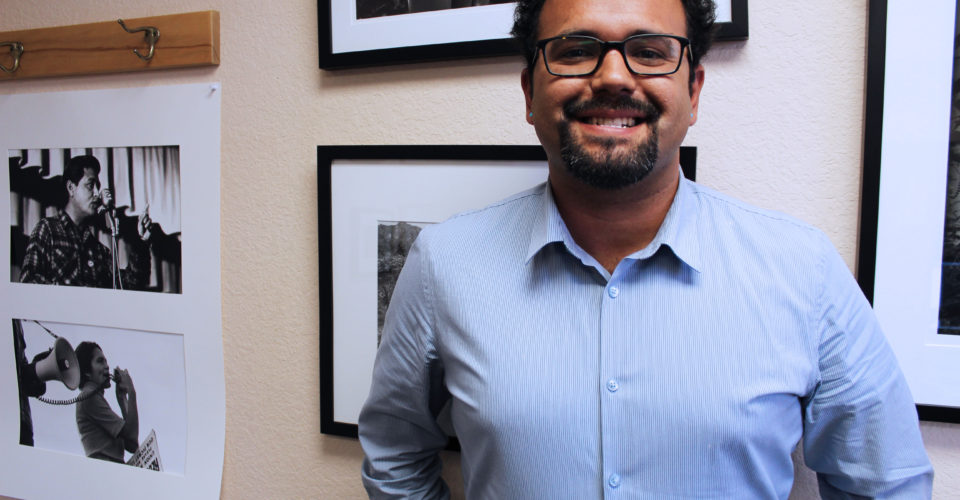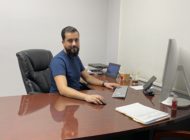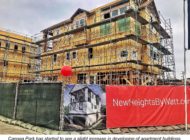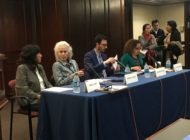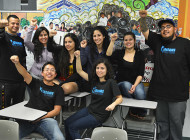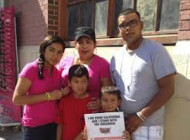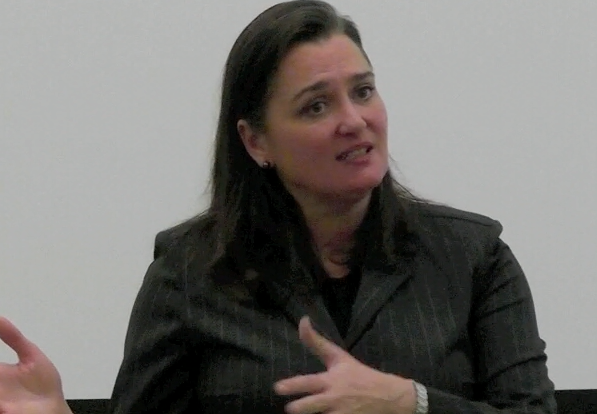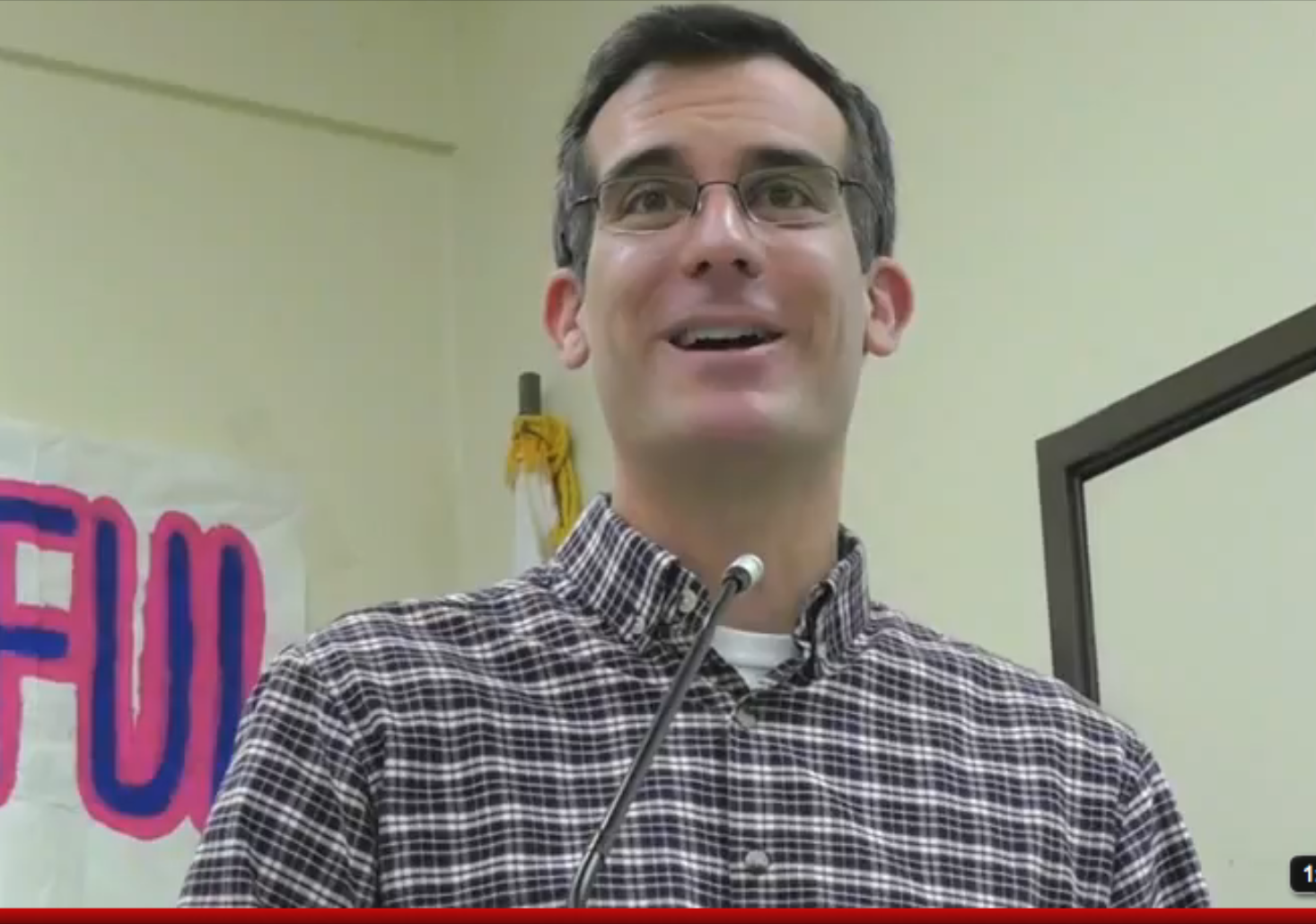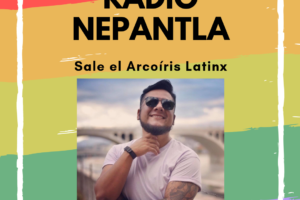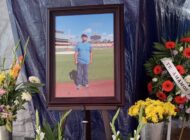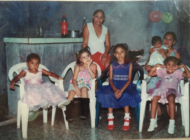Many times we don’t see ourselves running for office, especially me being undocumented at some point. (Photo by Nicole Martínez / El Nuevo Sol)
BY NICOLE MARTÍNEZ
EL NUEVO SOL
A former undocumented immigrant is running for Los Angeles City Council district 12. Carlos Amador is running for the position after Mitch Englander resigned in October 2018.
Amador arrived to Pomona, California in the summer of 1999 after his father took the decision to seek better opportunities in the United States. Amador was 14 years-old when he arrived to the country.
He grew up in the house where his father was also raised in Mexico City, Mexico. His aunt along with his family had a tradition of selling tamales on weekends. He indulged in this typical Mexican dish with his aunts, uncles, siblings, and cousins.
While Amador lived his childhood, his father worked at the bank Banamex which was the main bank in Mexico during that period. Banamex was a publicly owned bank. The bank eventually became privatized and was sold to a company and is now owned by City Group.
The transition the bank went through impacted the Amador family. In the nineties the economy crashed and it caused the family problems.
“My dad’s jobs became at risk and ultimately he was laid off in 1999, so I think we dealt with a lot of economic issues and struggles during that time,” said Amador.
His mother left Mexico to come work to the United States along with his younger sister. She saved money to help the family pay off some of their debt. While she was here, Amador was struggling academically in middle school.
“I was misbehaving, acting out, and I think part of it was the economic struggles and the separation of our family. My mom was gone who was the center and the anchor of our family and my sister was out here, so we followed them,” he said.
Amador reunited with his mother after he entered the United States with his tourist visa. He shared that one of his earliest memories was when his mother would take him to help her at the clothing hanger factory where she worked. Amador helped her with hangers and boxes. During that time he understood that his parents left everything behind to give him and his siblings a better life.
He assured that he was able to make strong friendships and established a strong support system with others who were also recent arrived undocumented immigrants. Amador noticed the difference between home and Pomona.
“Pomona is a city but it’s a small city in comparison to the big buzzling city of Mexico City. So everything felt so far apart because there isn’t any reliable public transportation system, everything also looked cleaner and there was grass everywhere, in Mexico everything is pavement, everything is fenced up, or there’s big walls,” Amador said.
While he adjusted to his new life he attended high school. He had the desire to obtain higher education. Amador remembers not having too many mentors, however, he started to explore careers, some of those included being a Spanish teacher or a counselor.
Amador graduated high school in 2002 and made the move to attend Mt San Antonio Community College. He went to the campus to apply for the fall semester and faced a bump along his way.
“They said ‘Well if you don’t have a social security number you need to apply for an international student and you’ll have to pay 10 times as much’ and I was like well that doesn’t sounds right,” he said.
After the unpleasant news he recruited to his high school counselor, Jose Payas for help. Payas urged Amador to apply for AB 540. Under AB 540, classified nonresident students are exempt from paying nonresident supplemental tuition.
A week later he went back to the Community College and applied for AB 540, he shared that he was one of the first students to apply for it.
“If it wasn’t for that counselor I would have thought there was no other way around it and wouldn’t be able to afford, it was a life changing experience.” Amador said.
After community college he transferred to California State University Fullerton. During his time there he was exposed to the social service field and community service.
The struggles he faced as an undocumented immigrant were the same ones others confronted. Undocumented immigrants experience the difficult challenges of securing a stable job, face exploitation, and cannot apply for financial aid. Another major nightmare they live on a everyday bases is the fear of deportation. Amador’s brother was deported in 2003. This lead him into the pathway of activism.
The first march he participated in was in the mega march in 2006 in Los Angeles. This march occurred after senate wanted to pass the Sensenbrenner bill. This bill would have made it a crime to aid undocumented immigrants with food, housing, or medical services.
Since then Amador has been an advocate for pro-immigrant legislatures. He even turned a support group for undocumented immigrants to an organization on campus along with other students.
Now, he aspires to have a seat in the L.A City Council. Currently, he is the only Latinx candidate running.
“Many times we don’t see ourselves running for office, especially me being undocumented at some point,” he said. “I was still thinking I would continue to do advocacy and organizing on the outside but I think to me it also came to a point, like our movement should be part of those spaces,” Amador continued.
As a former undocumented immigrant his personal experience brings a different perspective to the table. He is aware that certain decisions impact everyday people. His skills and training in social work make him a unique candidate.
Amador has numerous plans for district 12. One of those is the homelessness crisis the district faces. According to him district 12 has not built supportive housing units, this was part of a pledge last year.
He wants to create affordable housing for those who are at risk of losing their homes and for students who are struggling to live closer to campus. In that same agenda he hopes to protect rent control units and increase the number of affordable housing units.
The candidate is also focused on climate action. His goal is to shut down the Aliso Canyon Gas Facility. Many were affected by this leak that was discovered in Porter Ranch in 2015. Residents in the area got sick.
Amador also wants to make sure the economy is working for everybody. This means implementing proper work conditions, protection for workers, and assuring a proper and fair living wage.
“I think many times people in the San Fernando Valley feel left out, unheard, and underappreciated by City Hall in downtown. I want to make sure that the government is listening to those who are left out.” said Amador.
Amador came to the United States almost 20 years ago and he is aware that the fight must continue. He has taken every opportunity granted to him and has used it to his advantage, but he also has used his knowledge and advocacy to help those who need it the most. His parents, wife, and 5 year-old daughter have all been an essential piece to his career.
“I think about the phrase that has popped up in recent years, like we are our ancestors wildest dreams and I try not to invoke it a lot because I don’t want to lose the special touch to it but I think we are” he said.
Tags: Carlos Amador City Council District 12 housing San Fernando Valley SFV undocumented immigrants worker rights






